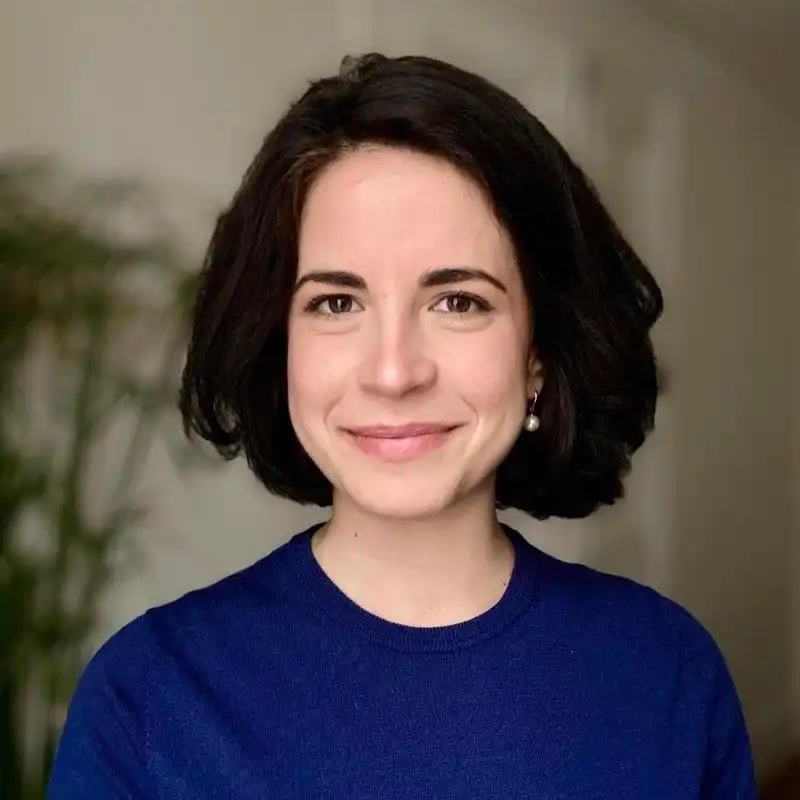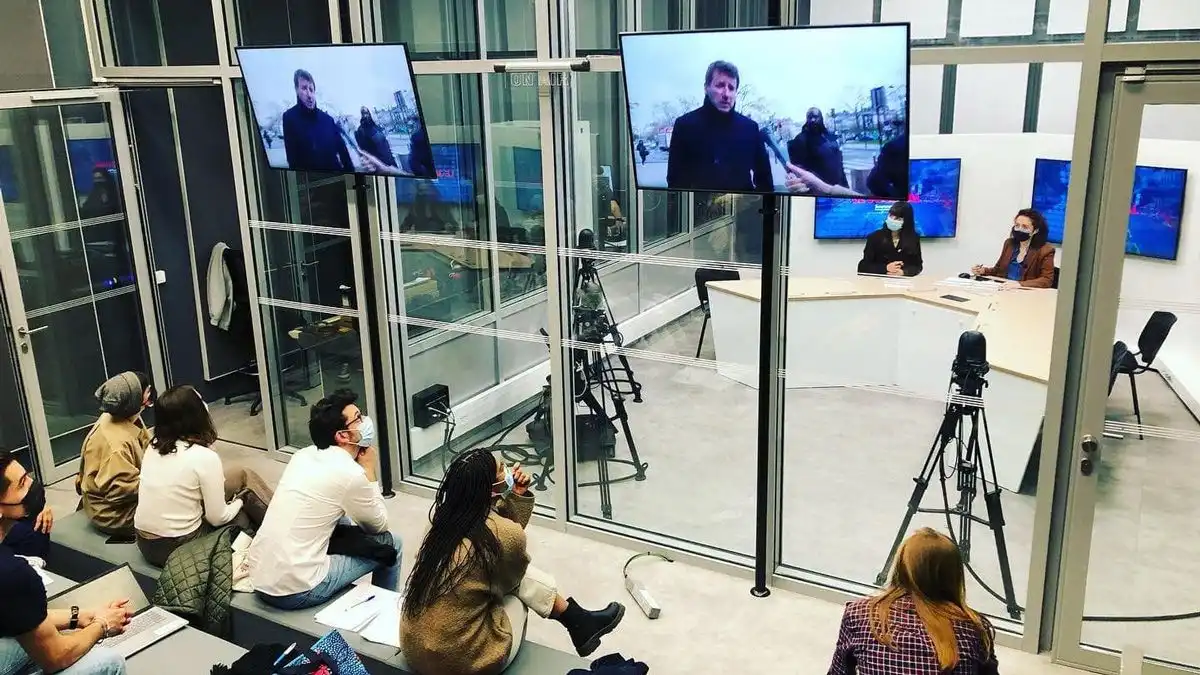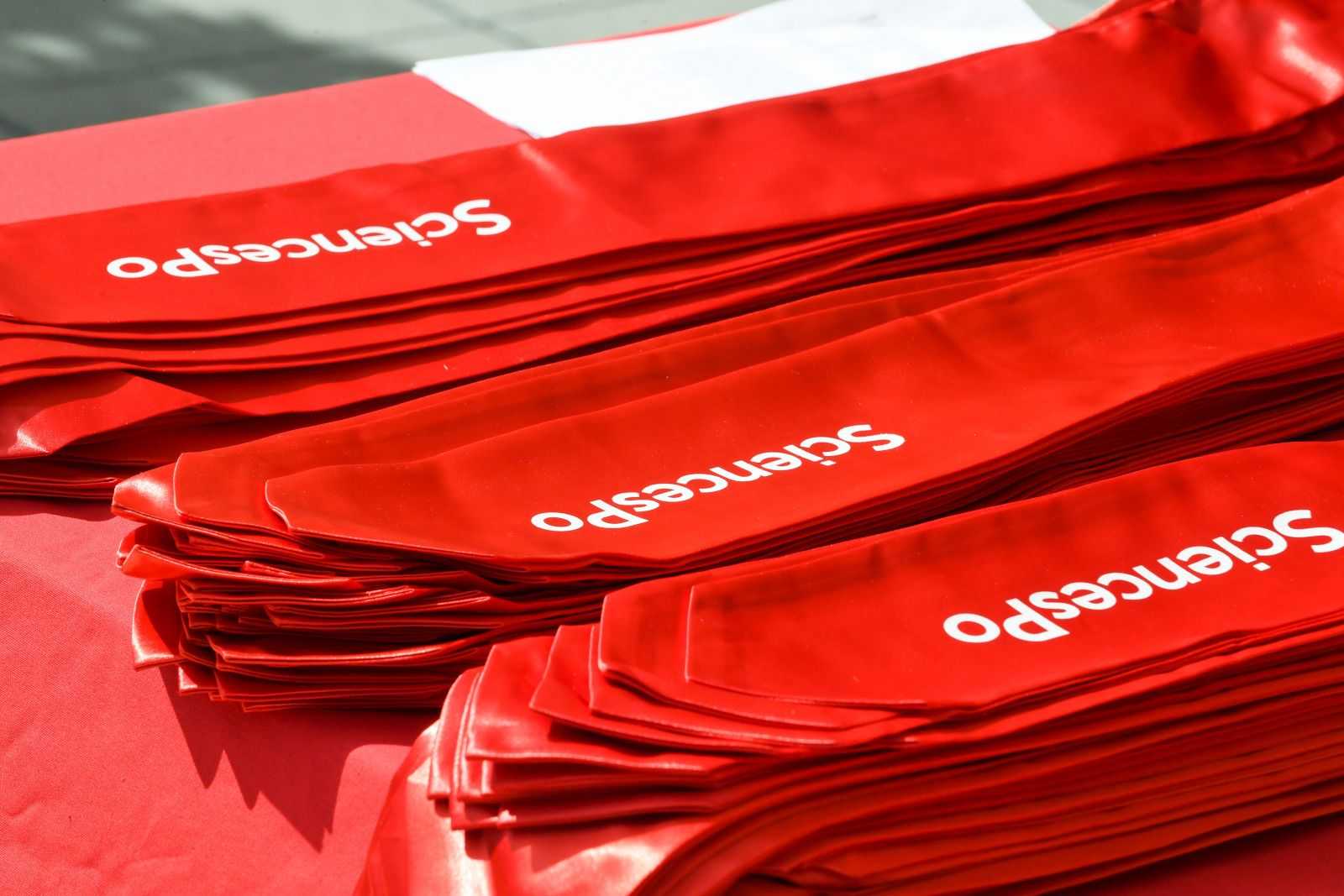
Home>About us>The School
The Sciences Po Journalism School
The Sciences Po Journalism School is one of fourteen schools recognized by the profession
The training offered at the Journalism School is based on two requirements: an outstanding academic knowledge in social sciences, which are always a priority at Sciences Po University and vital to all future journalists, and a hands-on practical knowledge of the job provided by media professionals coming to share their experiences. These two aspects complement each other, be it in classrooms or on the field.
Besides, all the programs are focused on the international media landscape and offer a deep knowledge of the journalism practices and its shifts at the digital era : Master in Journalism FR, Dual degree in Journalism Columbia / Sciences Po ENG/FR, Joint master "Journalism and International Affairs" ENG/FR between PSIA / Sciences Po Journalism School.
And continuing education : Executive master in media and digital management, On demand training for working journalists.
Discover the Journalism School in video
Marie Mawad, Dean of the Sciences Po Journalism School

"Content is everywhere, irrigating our lives in an incessant, abundant flow. Still, what our societies are craving most, in this age of information tsunami and the constant threat of fake news, is a set of reliable sources to turn to. It is in the face of this, and other pressing issues of our time, that the Journalism School of Science Po is training the next generation, with an academic and practical offering built around three axes: technical mastership, cultural and ethical foundations, and the experience of innovation.A key part of becoming a journalist is acquiring the professional know-how and technical abilities needed to operate in a newsroom. That’s why, since its inception in 2004, our school has systematically delivered a very complete technical training. Classes and workshops put professionals from French and international media at the helm, in conditions inspired by real-life newsrooms and on-the-ground reporting conditions — with modern equipment handy.
Of course, practical experience alone isn’t enough. At J-School, it sits atop the foundations laid out by Sciences Po, with values of critical thinking, and the ability to question the world and oneself, at the core. To prepare students for the heavy responsibilities that come with being a journalist, culture and ethics are a key part of our education.
Finally, in the face of a profession in constant evolution, Science Po’s Journalism School places editorial and technological innovation at the center of students’ experience, to encourage future journalists to take the lead on inventing and disrupting. The School has been dedicating increasing space to media startup creation, among other initiatives.
We’ve defined these axes in line with the industry’s latest developments and with job market opportunities, and we’ll continue to evolve our offering to reflect conversations with leading media. We stand ready to welcome you, up-and-coming talent, to create tomorrow’s journalism together."
Quality knowledge at the heart of a University
The Sciences Po Journalism School is fully integrated to a first-rate university. Just like Sciences Po University students, students attending the School of Journalism are trained by Sciences Po teachers who share with them all the findings made in Sciences Po's nine research centres (the International Research Centre, aka CERI, the Political Research Centre, aka CEVIPOF, the Economic Research Institute, the Centre for the Sociology of Organizations, aka CSO, the Sciences Po History Centre, the Sociological Research Centre for Social Change, aka OSC, the Global Economy Organization, the Sciences Po European Studies Centre, the Social and Political Data Centre).
Throughout the whole course, students are led to think of all the major political, economic, social and environmental issues which are at the heart of international news.
A whole section of the courses is devoted to macro-economy and micro-economy, since too few young journalists master the real challenges that arise from these fields. Moreover, improving their history knowledge enables them to better deal with news: they analyse, prioritize and put them into perspective by thinking on a long-term basis.
Immersion in a journalistic environment

The Journalism School gives its students the means to benefit from the experience of several well-known working journalists.
They attend classes on media history and law. In addition to that, several workshops are dedicated to codes of ethics. They offer students a dynamic and empiric approach and understanding of journalism and its rules.
A special status is granted to issues such as mastering journalistic writing or narrative techniques, which are taught during workshops especially designed for different types of media (writing for news websites, mobile applications, for newspapers and news webistes, for video or TV channels).
Students are trained to write articles, portraits, interviews, investigations and reports for magazines on a weekly basis.
Investigating information is another key element in this teaching project. Students are supervised by professionals and learn about the techniques used on the field by carrying out interviews, reports and investigations. As for using the digital tools and mutimedia storytelling techniques, students are shown how to use search engines and to check the accuracy of live information and elements glaned from social media.
This includes tasks such as live covering of demonstrations and presidential elections on the Internet, checking news in real time, constantly creating formats to adapt to the continuous flow of on-line news. Students are trained to react in real-time when they work in Web newsrooms, and to investigate on networks.
Certain weeks are dedicated to specific editorial projects to learn how to build from scratch a journalistic report and to work as a team.
In order to put a final touch to their Master's degree, second-year students work on a report or an investigation for three weeks, and can choose the media they want (mobile, online, TV, video, print). They are supervised by a tutor belonging to the Journalism School's team of teachers and present their master's project to a jury.
Moreover, Sciences Po's School of journalism is entitled to train journalists under an apprenticeship contract (only for students enrolled in the Master in Journalism). The training combines a course at Sciences Po University and a work experience in a company.
The trainess are then integrated to the newsroom's staff and benefit from a practical training as well as advice from their supervisor. They keep their student cards but also have the same status as an employee, with the same rights and the same duties (salary, social protection, paid holidays, contribution to pension plans and employment insurance). The company is partially or completely exempted from fringe benefits and is awarded a compensatory allowance by the government. The tuition fees are paid by the company, which also pays for the apprenticeship tax.
During the whole course, students take part in the journalistic life in newsrooms, be it for newspapers, the Internet, radio stations or TV and video channels. During the first year as well as during the second year of the Master's degree, 8 weeks per year minimum are devoted to internships.
Digital journalism at every step of the way
Teaching digital journalism is crucial to the Journalism School. No matter what media students work on (radio, TV, Internet, newspaper), they learn about how to master all the tools and uses of the network to produce desktop and mobile contents.
Digital culture, data investigation, online editing, live blogging and fact checking, engagement with the audience, video and pictures editing, social media investigations… As soon as they start their first year, students are immersed in digital technologies. A whole range of intensive classes, courses and professional workshops give them the opportunity to acquire the specific abilities applying to digital journalism.
A reflexion about the future of journalism and new models
Sciences Po Journalism School's students are encouraged to think about their professional environment and to question their future job. Each year, Sciences Po hosts the annual conference about new practices in journalism, which is a big event now both for students and working journalists.
Students are also prepared to explore various models for news, with courses on Media Economics and new business models. It helps them (who work in little groups) to come up with a new and profitable idea about journalism. Those courses also introduce them to the new media ecosystem and the changes in the technological environment surrounding on-line media (Web technologies, business plans, marketing, media and journalism economy). The students will then work on a project aimed at designing a real start up for news.
An international focus
With the dual degree in journalism between Columbia and Sciences Po, a third of international students within the group, workshops taught in English, and partnerships with a large number of Journalism Schools abroad, students from Sciences Po School of Journalism are immersed in a worldwide view of journalism.
Once they graduated from Sciences Po Journalism School, 25% of alumni work in an international newsroom (AFP Madrid, AFP Hong Kong, The Wall Street Journal, The Financial Times, ABC News, The Daily Mail, The Guardian, Bloomberg News, etc.).
Just like working in a newsroom
The Journalism School, located right at the heart of the Saint-Germain-des-Prés area in Paris, has its own quarters in Sciences Po brand new campus. Newsroom, audio and video report units, radio and TV studios…
Students work everyday in the newsroom, a huge editorial office with plenty of computers that can be used freely, and equipped with audio and video editing software. These computers are connected to the AFP (the French Press Agency) news, to the EVN (Eurovision) and to the Internet.
Sciences Po grants its students special access to a whole range of documents : its library is one of the richest ones in Continental Europe and has press kits dating back from 1945, as well as more than a million books and numerous digital databases.

Exceptional career opportunities
Jessica Lederman, hired as a reporter at TF1 as soon as she had been graduated, Louis Moulin, local journalist for Le Parisien, Cécile Dehesdin, journalist at Slate.fr, today at Lexpress.fr after her dual degree in journalism Columbia/Sciences Po, and Aurélie Charon, who began at France Inter whereas she was still a student at Sciences Po, today hired at France Culture... Those alumni from Sciences Po Journalism School speak about their career in the video below.
Even if the market for journalism is compelling, alumni from Sciences Po Journalism School are very quickly hired in various newsrooms in France and abroad.
It may be the only Journalism School in France where students are enrolled for a long-term in newsrooms before they are even graduated. Please see the results of the survey online (FR).



